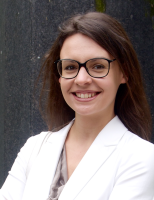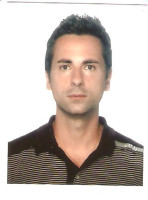Macroeconomics
Banking & Financial Institutions
Financial Markets, Modelling & Pricing
Post-Doctoral Fellowships
France
2018.01.31
Transitory shocks, persistent effects: towards better suited recovery policies after a financial crisis
Avoiding misinterpretation of economic phenomena
« I believe that the better way to reduce the risk of misinterpreting economic phenomena is not having a unique, good model but rather a variety of models, built on different assumptions, in order to compare the different results and be able to select the model that fits better with the current historical context », continues Bassi. He uses the example of Italy which has lost 20 % of its productive capacity since the financial crisis and where a lot of businesses have closed. « How can we design effective recovery policies if we take for granted that these businesses are going to reopen? We’re designing a method that is more flexible and that doesn’t assume that. » Once this is done, him and his team will move on to designing a new macro-economic model to try and simulate various policies.
Theoretical models are crucial tools in assessing complex phenomena and in trying to mitigate their adverse impacts. That is if they reflect reality faithfully… This project develops along this main concern. Recognising that « the existence of permanent effects after transitory shocks seems to be the norm rather than the exception », Bassi’s project naturally aims to adapt current methods to this newly recognised phenomena, broadening the spectre of how economic recovery is presently approached. At a time when economists are in need of better understanding the effects of different stabilisation policies and the effects of institutions on the business cycle, his findings hold great potential for highly-needed insight.

Federico
BASSI
Institution
Université Sorbonne Paris Nord
Université Paris XIII
Country
France
Nationality
Italian
Related articles
Behavioral Economics & Decision Sciences
Macroeconomics
Trade, Consumption & Global Markets
Post-Doctoral Fellowship
Italy
2017.08.31
When misperception of wealth lead to financial crises
Financial literacy : are people equipped to make effective decisions with their money? The first part of his research will... Read more

Alberto
CARDACI
Complexity Lab in Economics
Insurance & Risk Management
Financial Markets, Modelling & Pricing
Post-Doctoral Fellowship
Switzerland
2017.07.31
Fast and accurate simulation of randomness
Transforming current methods to adjust it to real world applications » Dr. Michaela Szölgyenyi’s project seeks to address two sets... Read more

Michaela
SZöLGYENYI
Eidgenössische Technische Hochschule Zürich
Cyber Threats & Cybercrime
Banking & Financial Institutions
Fintech & Digital Finance
Insurance & Risk Management
Post-Doctoral Fellowship
Switzerland
2016.09.30
Making cyber fraud detection methods quicker and more reliable
Optimal stopping theory: applying probability and statistics to fraud detection "In current methods, the normal card user pattern of expenditures... Read more

Bruno
BUONAGUIDI